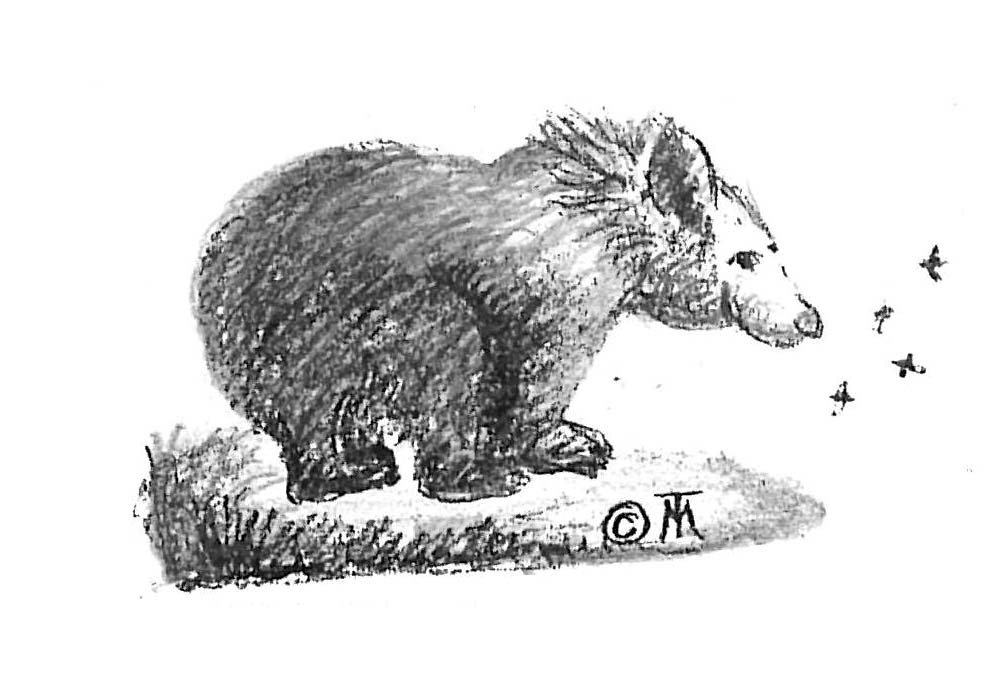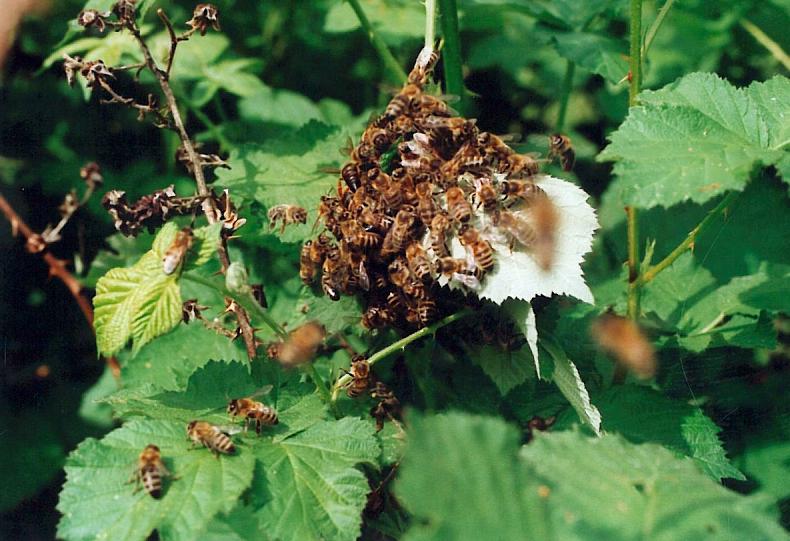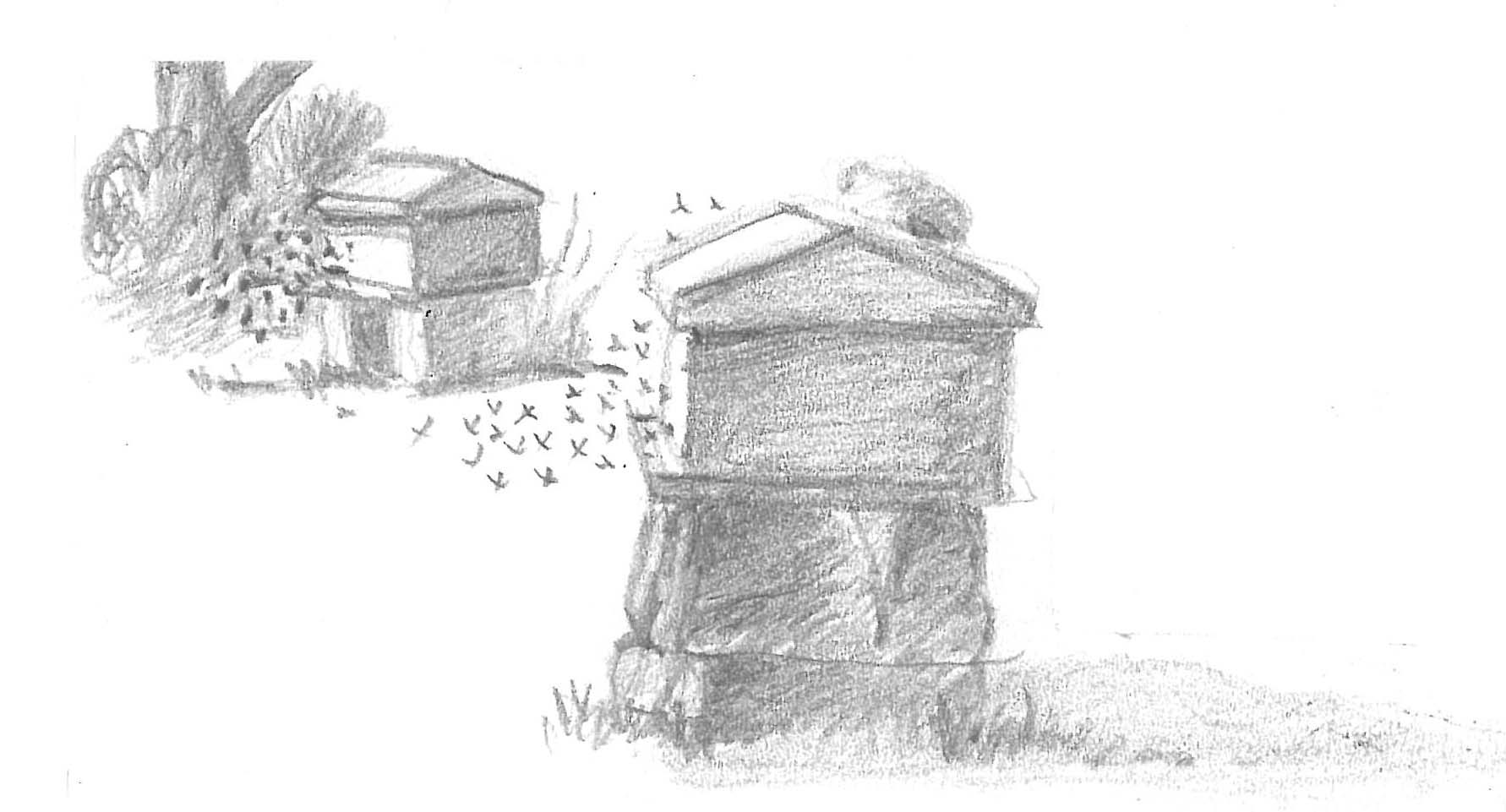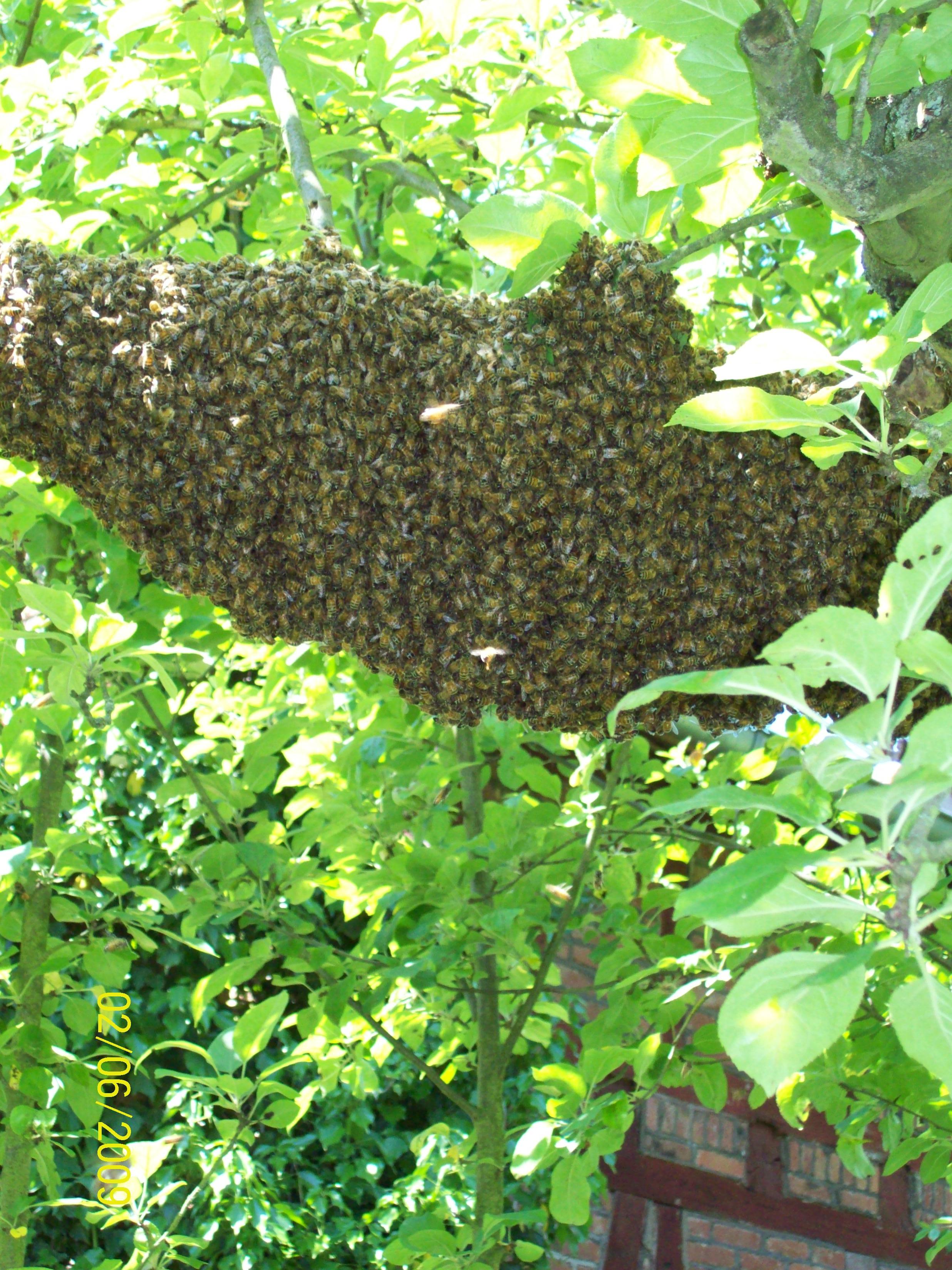



Sign
up for bee-therapy | Beauty-cure
| Anti-aging | Infertility
| Cancer
of the breast | Hashimoto-Thyreoiditis
|
Crohn's disease
Rheumatism
| Juvenile idiopathic
arthritis | Heart
diseases | Arteriosklerosis
| MS |
Diabetes
| Neurodermitis
| Obesity |
Depression
and Psychosis
Allergies
| Alzheimer
/ Parkinson | Diseases
of the kidneys | Pancreas
| how
to improve fitness of the body
Propolis
| Beeswax | Royal
Jelly | Organic Honey |
Comb
in the Comb | Raw Honey
| Organic Beekeeping
Basic Course
Expertise
| Courses | Home
| Research | Save
Beecolonies-Bienenpatenschaft | Certification
| Training Apitherapy
Nature And Art
Some beekeepers may describe their
bees as „small biological robots" (1) and set up their beekeeping accordingly;
they may theorize as much they want, the real root of the matter they meet
not as a rule - many Eco-beekeepers closed-in. Good advised is, who recollected
to the Goethe - word: „Man have heard also a thousand times of an object,
the characteristic of the same speaks only to us from the direct looking
on ". If now also the thinking get applied in the correct way, we come
on the track of the essence of the „concrete and archaic bee 'thinking"
(2).
„Nature is the only one book, which offers great content on all pages"
noted Goethe in Italy. Astonishing is, that theatre doesn’t give him gladness
anymore. The nature and the fine arts became more important to him in Italy:
„Their ceremonies and operas, their etiquette and ballets, it flows all
as water off an oilcloth jacket to me down. Against an effect of the nature
as the sunset, seen of the villa Madama, a work of the art as the much
adored juno make deep and remaining impression.. . with operas I don’t
have a good time, only that intimate and eternal truth can now gladden
me". On december 1787 he resummarized: „The reason and the consequence
of the great masters is incredible. If I by my arrival in Italy were like
new borne, so now I catch, how to be new brought up". he says of himself,
he leads quite a nature living, „as it is only possible on the ground of
earth."
A funded understanding of the fine arts and nature Goethe learned on
his two years lasting italian journey: „In the art I must bring it so far,
that all will become knowledge from one’s own experience, nothing remain
tradition and name, and I force it in this half year, also it is not forced
anywhere as in Rome". He studies works of art and works the nature - not
as it is being tought today many times at universities: „These high works
of arts are produced at the same time as the highest nature works by human
beings according true and natural laws. All highhanded, prided falls together,
there is necessity, there is god". Goethe writes 1787 in Rome, if he were
cappable to establish an academy, he'd take care, that his students and
sophomores study nature seriously and in the above mentioned sense. Because
only in that way originate a fruit bringing, natural art of healing - contrary
to modern allopatic medicine, an art of education considering the character
of human beings - contrary to the consisting „system of education", an
art of country cultivation and beekeeping* - contrary to methods used today,
socalled „organic beekeeping" closed-in.
The a bit sadly notion, one had in the southerly Italy in the 18. Century
from the northern countries: „Sempre neve, case di legno, gran ignoranza,
ma danari assai" and which Goethe translates „for edification of
all German peoples" with: „always snow, wooden houses, great illiterateness;
but money enough", mustn't delude over that German peoples didn’t know
to estimate nature. The new turn in the German climate - and energy politics,
as well as the agrarian turn probably leads worldwide to positively resonance.
The most think also not thereon because of single Bio-scandals (head-word
Nitrofen) to throw the musket in the grain. Also the new „Bio- label "
developed by Mrs Künast proves his good services. Nobody came on the
idea, to say: „you can keep it or you may put it on the hat! ", or who
would take the figure and fix it really on the hat - as a type of happening
in the sense of Josef Beuys? It is actual prodigious, that Mrs Künast
has presented that happening before all eyes on the „green week" in Berlin
(3).
Actions of this kind are good and helpful, but what about the actors,
which are involved in the agrarian turn? Who advises them? How do they
carry out their publications? What distinguish the advocates of the socalled
„organic" beekeeping? What about their understanding of nature and art?
Here some examples.
The biologists Mrs Keppler and Mister Hähnle, who stir forceful
the promotional drum for the Bioland - and Naturland - Association, as
well the Demeter bond in their article „organic beekeeping - what does
it distinguish?", inform the unsuspectingly reader:
„The aim of organic beekeeping is an high quality of the apiculture
products, which distinguish from all others by being not adulterated..."
(4).
The reader obtains the impression, that beekeepers, being not organized
in one of these three Bio - associations, falsify their honey. Honey falsification
or adulteration are at least in Germany since 1976 forbidden by the honey
regulation and get practised therefore of no one single beekeeper in Germany!
Do they have no editors at the German Beejournal? Sometimes I wonder which
kind of scribblers are allowed to write something in these Journals. Understandable
is the reaction of renowned scientist on such stating. Many times one sees
only the big fuss, which is being done about „organic" beekeeping, and
one doesn’t get the idea, that real nature is involved; total in the opposit,
one more has the impression that the consumer shall be misled: „Also numerously
other honey have according Eco - test no residues, but are according to
Eco - test not ‘certified organic’. Won’t the consumer be misled here with
doubtfully concepts? " (5)
Though the migration into conventional fruits cultivation territories
is prohibited by the above named associations, they prefer to leave themselves
a loophole and a way out: „In order to lead the consumer not in the err"
(6) - as it is called - one can find by the Bioland - honey on the label
the note: „Because of the great flight radius of the bees it isn't to expect,
that they fly in any case only, or predominantly to ecologic managed areas"
(7).
What about the authors’s understanding of ecological beekeeping?** It
should „consider the character of bees" (8) for example. What about
their understanding of the character of bees? Principally, that one shall
not transport the bee from the living to the deads: „A destruction of the
bees is prohibited because of animal protection reasons" (9). An amicable
intercourse with the bees naturally belongs to the good tone. It is clear,
that a mutilation (for example clipping of the queen’s wings) also is excluded
- though some „organic" beekeepers are of other opinion (10).
In all friendliness, at all love for the bees, in respect of breeding
friendship doesn’t go that far: „In respect of breeding there are in the
EU - organic rule no instructions. The German Eco - associations recommend
certainly the utilization of the natural swarming impulse for breeding"
(11). The Eco - associations give admittedly recommendations, but the artificial
queen breeding by grafting, and the artificial insemination of the queen
with anesthesia, as well artificial breeding methods, „Super- queens "etc.
are still allowed (12).
Outwardly they seem quite amicable again regarding the beehives: „The
dwelling of the bee shall predominantly consist of natural materials" (13).
If the bee hives in single cases are only so abound with wire and small
plastic parts within the hive, this should - so the authors - not
delude over the fact, that they „predominantly consist of natural materials"
(14). - What naturally not means, that the so-called „Eco- beekeeper" itself
must hold on to the international usual, or for the bees meaningful hive
- and frame dimensions. A certain Mr Knabel, Demeter beekeeper and colleague
of Mr Weiler, was so clever, that he has invented just a new measure! -
namely the „9- honeycombs ZaDant magazine" by the frames dimensions 42x33
cm (15). Pridely he writes: „From experience Andreas Knabel has made during
his two-year training at Günter Friedmann, he developped (as skilled
joiner) the system further in small alterations of the construction.. .
Thus that of the Knabel apiary offered hive system can refer back on an
experience of two beekeeper masters and one skilled beekeeper and joiner"
(16). -- Great! And he can already look back to a kind of own history:
„At first developed was that nine - honeycombs magazine in the Zander-measure
with fold chaplet of Josef Bretschko. Günter Friedmann developed it
then 1998 further.. ." (17). Should that mean, that we now have three Dadant
- dimensions in Germany? That sounds expected to be record and reminds
me to an interestingly preface of the apiculture - technology magazine:
„Nowhere on the world there are so many diverse framedimensions and
hive systems as in Germany. That has tradition, that even today is still
frisky being proceeded! Therein we are uncontested world champion and will
remain it also for a long time. A change in trend is still not in sight.
Only a little example: Our European neighbours (France, Spain, Italy, Switzerland
and the eastern countries) have decided themselves predominantly already
for the dadant hive (exclusively Typ sheet). In Germany one has managed
to make the so-called 'modified' Dadant toothsome to beekeepers. Now we
have beside the whole framesalad also still 2 diverse Dadant-dimensions
and Dadant-hives. You won’t find it in no other country of the world! And
this not even praiseworthy world champion title no one takes away in conceivable
time also! " (18).
Lets go back to nature - for the time being not to Goethe’s perception
of nature as I would like to but to that kind of nature being understood
by Mrs Keppler and Mr Hähnle together with the „organic" associations.
They at least want a puff of nature: „The association- guidelines of the
Bioland - association provide also the possibility of combs drawn out naturally"
(19). At least shall theoretically exist the possibility for the „organic
beekeeper", to keep himself to nature. But the authors see the risk if
too much nature is involved: „You certainly have to count with drone brood"
(20).
Mrs Keppler and Mr Hähnle have somehow informed us about the so-called
„organic" beekeeping methods.** Now they ask themselves: „What is different?
" (21). Truthfully, that question arises sometimes! Till now no engraving
differences could be discovered. But it is not yet the end of the article
reached. Still absent is the theme honey quality; here they’ll surely have
something to say - one must only pay attention, that one not overlooks
it!
„On EU - plane no particular regulations will be met for organic honey"
(22).
Yes, by the Eco - associations naturally it looks completely different;
the authors discuss the Bioland guidelines. Therein it is said: The storage
of the honey shall take place „best in the stired condition. For filling
it is necessary then only melting of the honey" (23).
The authors are convinced, that so-called „Eco-beekeepers" could maket
- according to their understanding - a „highly nutritous product" (24).
How little this yet has to do with the above mentioned understanding of
art and nature, we have quite distinctly seen and has been discussed further
(25); thereof testify also the abstractedly schemes, as they are carried
out by the authors to the theme „bee and human being in the balance of
nature ".
Thus there are many, who can’t dedicate themselves to a right perception
of nature and art, and get channeled to wrong conclusions many times. Goethe
meets them always again on his italian journey; he describes them as wasps
in his room, „which drive against the window and hold the brightly screen
for air, then rebound again and hum at the walls". Goethe has a totally
own type of handling with those kind of people: „I am merciless, intolerant
towards all, who stroll on their ways, or err and want to be held for messengers
and travelers. With joke and mockery I make fun of them so long, until
they change their lives, or separate from me." Of course Goethe has done
already a preselection, because „people with half- and lopsided heads on
their shoulders get without conditions instantly separated with the tub."
With it be noticed, that Goethe is peace-loving. On his italian journey
he says of himself, he is a child of the peace and wants „peace for and
for, with the whole world ", as he had made peace with himself one time.
Notes
*)
More information and address source for Bee-produce from beekeeping
considering the character of bees - for instance: comb honey with
natural cristalization (not heated) and honey from natural combs
(neither extracted nor stirred nor heated before filling) as well as pure
beewax without residuals under :
List
of beeproduce
Centre
for social Medicine and natural Apitherapy
Centre
for Ecological Apiculture.
Beekeeping
courses (practical and distance) in the Centre for Ecological Apiculture:
start now with ecological top-bar-beekeeping for beginners!!
**)
see also Apicultural
Review Letters
1. Gary, N.E., 1992, 1999: Activities and behaviour of
honey bees. The hive and honeybee. Dadant & Sons Hamilton/USA.
2. Lipinsky, Z.,
2002: Essence and mechanism of nest abandonment by honeybee swarms.
Swarming, absconding, migration and related phenomena. Olsztyn/Poland.
3. Hansen, H., 2002: Es grünt so grün auf der
weltgrößten Agrarschau. Schrot & Korn. Das Naturkostmagazin
3/2002. Schaafheim.
4. Keppler, C. & Hähnle, A., 2002: Ökologische
Bienenhaltung - was zeichnet sie aus? Deutsches Bienenjournal 10 (10):
416-417. Berlin/Germany.
5. Dustmann,J.H., 2002: Honig auf dem Prüfstand.
Deutsches Bienenjournal 10 (5): 183. Berlin/Germany.
6. Keppler, C. & Hähnle, A., 2002. See note
4.
7. Ibid.
8. Ibid.
9. Ibid.
10. In the Organic Beekeeping Journal 2001 (http://www.thehealingpath.com)
you can find the recommendation for „organic beekeepers": „The best methods
of managing the swarm impulse, is to clip the queens wings and catch the
swarm from the ground".
11. Keppler, C. & Hähnle, A., 2002. Siehe Anmerkung
4.
12. T+T Consult Certification System, 2002: Discussion
of standards for organic beekeeping in Europe and USA. Bad Sooden/Germany.
See also Internet courses #
01,
#
02 and #
03. Bad Sooden/ Germany.
13. Keppler, C. & Hähnle, A., 2002. See
note 4.
14. Ibid.
15. Knabel, A., 2002: Neues Zargensystem: 9- Waben ZaDant
Magazin. 88696 Billafingen/Germany.
16. Ibid.
17. Ibid.
18. Koch, K.-R., 2002: Editorial. Imkerei-Technik Magazin
2/2002. Oppenau/Schwarzwald/Germany.
19. Keppler, C. & Hähnle, A., 2002. See note
4.
20. Ibid.
21. Ibid.
22. Ibid.
23. Ibid.
24. Ibid.
25. T+T Consult Certification System, 2002: Honeyquality.
Bad Sooden/Germany. And Thiele, M., 2002: Quality of beeproducts and understanding
of honeyquality in the "organic scene". Bad Sooden/Germany.
First published: Apiservices 2002 - Virtual
Beekeeping Galery

